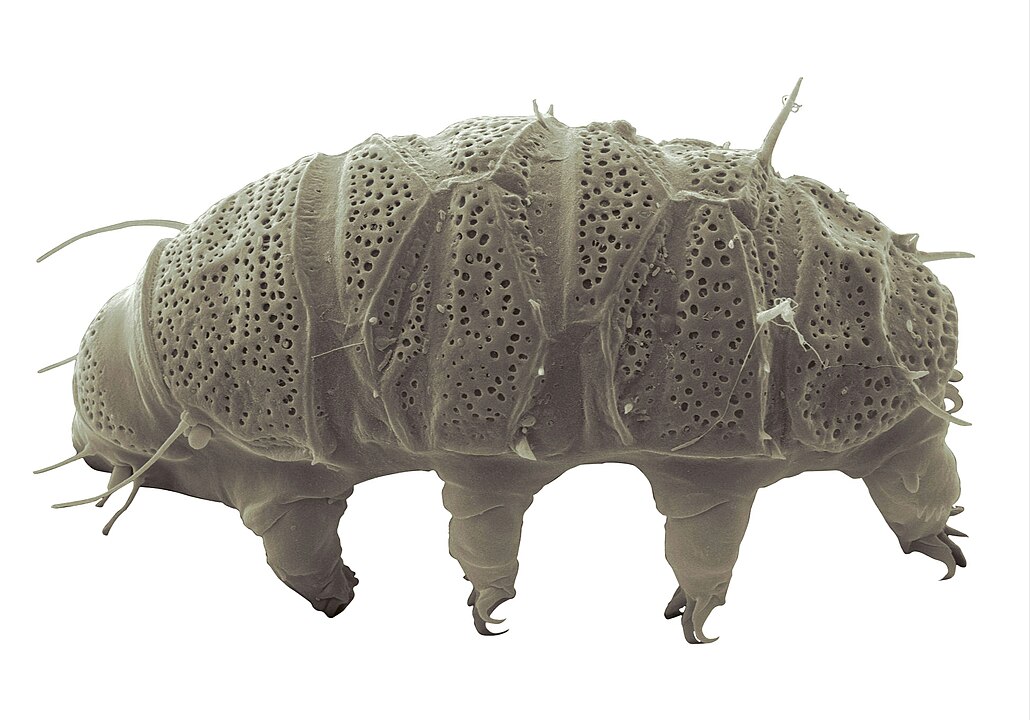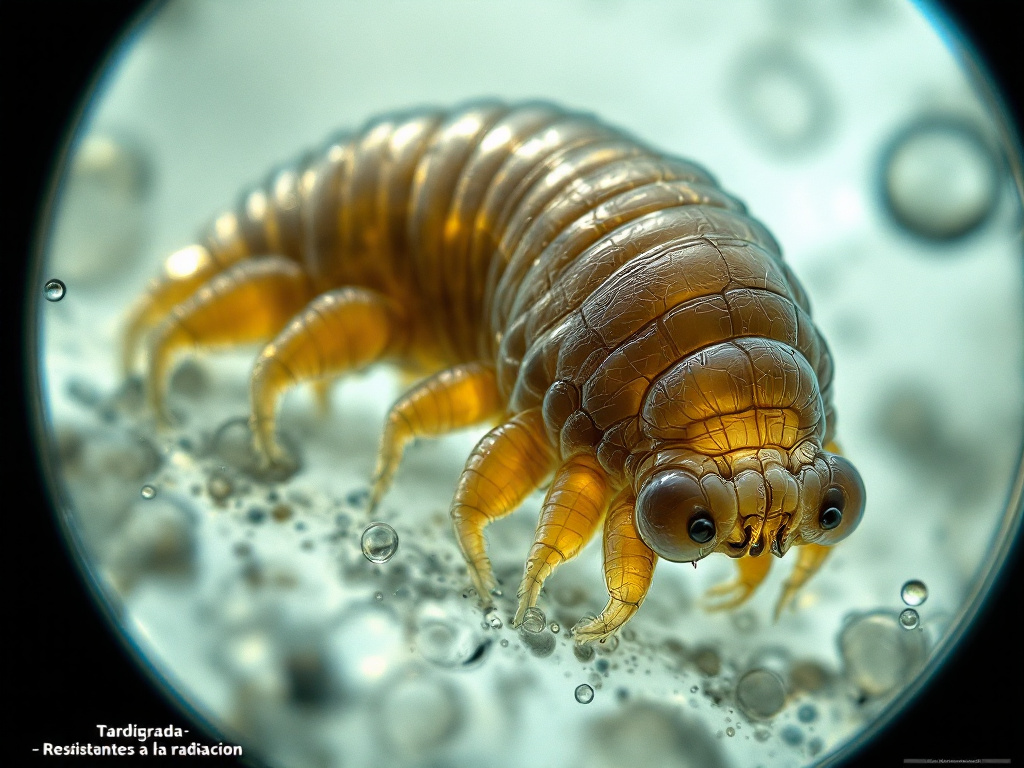Tardigrades, also known as "water bears," are microscopic organisms renowned for their extreme resilience. They can survive harsh conditions, including the vacuum of space, extreme temperatures, and high radiation levels. But is it true that tardigrades could help protect human DNA from radiation damage?
The Discovery of the Dsup Protein
In 2016, a team of researchers identified a unique protein in tardigrades called Dsup (Damage Suppressor). This protein appears to have the ability to protect DNA from damage caused by ionizing radiation and oxidative stress.
To test the potential of Dsup in humans, scientists introduced the gene for this protein into human cells cultivated in a laboratory. The results were surprising: the modified cells exhibited about 40% less DNA damage compared to normal cells when exposed to radiation.

Tardigrades known colloquially as water bears or moss piglets,
Limits and Potential of the Research
While these results are promising, some important considerations must be addressed:
Experiments were conducted only in vitro: The effects of the Dsup protein have been tested solely on cultured human cells, not on whole organisms.
Not invulnerability, but damage reduction: Dsup reduces DNA damage, but does not make cells completely immune to radiation.
Future applications to explore: DNA protection could have significant implications for space medicine, radiotherapy, and biotechnology, but further research is needed.
The Future of DNA Protection
If studies on Dsup continue to show positive results, we could witness groundbreaking advancements in human protection against radiation. Astronauts, for example, could benefit from this discovery to face hostile conditions in deep space. In the medical field, Dsup could be used to protect human cells undergoing radiation treatments.
However, we are still far from the practical implementation of these discoveries. Scientific research must answer many questions before we can say with certainty whether tardigrades can truly help us protect our DNA.
Tardigrades remain fascinating creatures, and the Dsup protein has demonstrated exciting potential for DNA protection against radiation damage. However, its practical use is still under investigation. If science can translate this discovery into real-world applications, we could be on the verge of a revolution in cellular protection and biotechnology.
Sources:
Dsup: (en.wikipedia.org)
Tardigrade: (en.wikipedia.org)
Environmental tolerance in tardigrades: (en.wikipedia.org)
Tiny animal known as 'water bear' produces radiation-resistant protein called 'Dsup' that can treat cancer patients: study: (nypost.com)








Leave a Comment